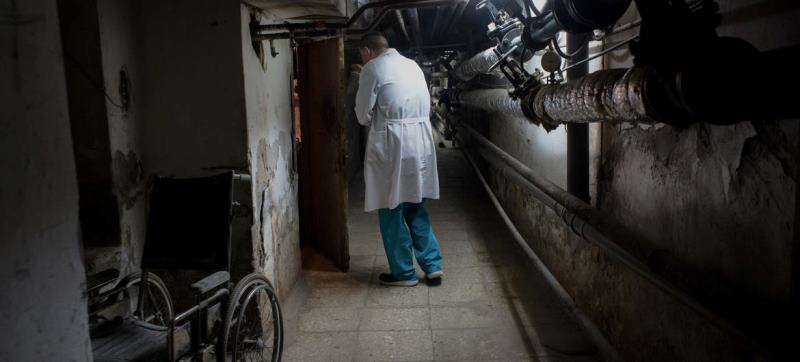 Health Emergency
Health Emergency New York: Amid mounting health emergencies globally – such as the COVID-19 pandemic, climate-related crises, and the war in Ukraine – the World Health Organization (WHO) on Wednesday announced an initiative to strengthen rapid response.
The Emergency Medical Teams (EMT) 2030 Strategy was launched at a meeting in Yerevan, Armenia, bringing together health workers, technical experts and international partners from 110 countries.
EMTs are groups of health professionals, including doctors, nurses, paramedics, support workers and logisticians. They are trained and prepared to provide immediate support during an emergency.
A stronger network
The more than 500 people attending the meeting are part of the EMT Network, which spans WHO’s six global regions.
The new strategy is the blueprint to continue to development of a network of effective and high-performing national, subnational and regional EMTs, in line with the agency's classifications and standards.
“As we build a new and stronger architecture for health emergency preparedness and response, a rapidly deployable global health emergency corps will be vital, building on the experience and capacities of Emergency Medical Teams,” said the WHO Director-General, Tedros Adhanom Ghebreyesus, in his opening statement.
“The EMT 2030 strategy envisions a world in which every country has the ability to respond rapidly and effectively to national emergencies, leveraging regional and sub-regional capacities to support vulnerable communities and others in need.”
Learning from the pandemic
The gathering also provides an opportunity to reflect on lessons learned from the response to multiple emergencies, such as the pandemic, now in its third year.
The global crisis has created an especially challenging context for emergency response in many countries.
For example, demand has increased for specialized skills on infection prevention and control, and the management of severe respiratory infection cases.
The WHO network has deployed nearly 200 international EMTs to support response in 67 countries, highlighting how specialized care teams support both a country’s response while building national capacities.
Value of collaboration
The pandemic “truly revealed the importance of strengthening in-country health emergency response capacities, including a highly-trained workforce and access to essential technology and equipment,” said Dr. Hans Kluge, WHO Regional Director for Europe.
It has also underscored the benefits of collaboration between EMTs and other WHO entities, such as the Rapid Response Mobile Laboratories of the Global Outbreak Alert and Response Network. This allowed EMTs to diagnose cases faster, leading to quicker treatment and care.
“Bringing EMTs and mobile laboratories together is also proving highly successful in the context of humanitarian crises, making the health response more effective in areas where health facilities and systems have been compromised, as well as when countries are receiving significant numbers of refugees with multiple emergency health needs,” Dr. Kluge added.
COVID-19: Report reveals mental health ‘pandemic’
And in another global health development, countries are failing when it comes to protecting the mental health and wellbeing of health and care workers, WHO and partners said in a new report issued on Wednesday.
The study examines the impact of the COVID-19 pandemic on the mental health of these professionals, warning that this too is a ‘pandemic’.
At least a quarter of those surveyed reported anxiety, depression and burnout symptoms.
Concern for women
The report was published by the Qatar Foundation, World Innovation Summit for Health (WISH), in collaboration with WHO.
Women, young people and parents of dependent children were found to be at greater risk of psychological distress.
The finding is significant, the report said, as women make up 67 percent of the global health workforce and are subject to inequalities in the sector, such as unequal pay.
The higher risk of negative mental health outcomes among younger health workers was also a concern.
“Well into the third year of the COVID-19 pandemic, this report confirms that the levels of anxiety, stress and depression among health and care workers has become a ‘pandemic within a pandemic,’” said Jim Campbell, WHO Director of Health Workforce.
The report contains 10 policy actions for governments, including investing in workplace environments that prevent burnout, promote staff wellbeing, and support quality care.
Support Our Journalism
We cannot do without you.. your contribution supports unbiased journalism
IBNS is not driven by any ism- not wokeism, not racism, not skewed secularism, not hyper right-wing or left liberal ideals, nor by any hardline religious beliefs or hyper nationalism. We want to serve you good old objective news, as they are. We do not judge or preach. We let people decide for themselves. We only try to present factual and well-sourced news.







